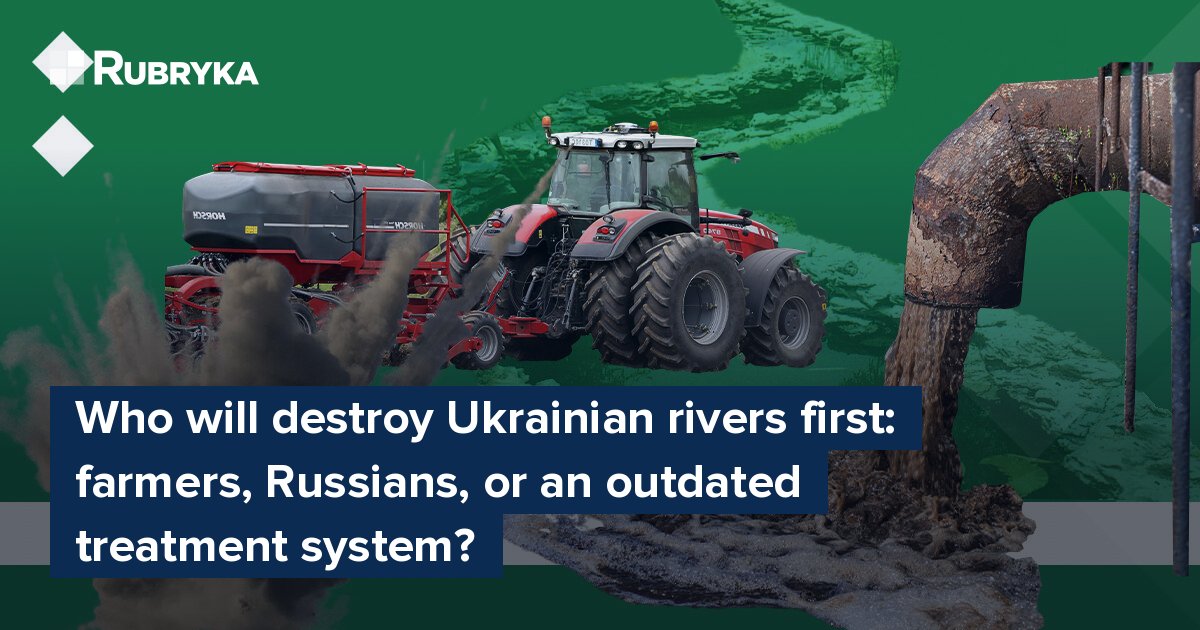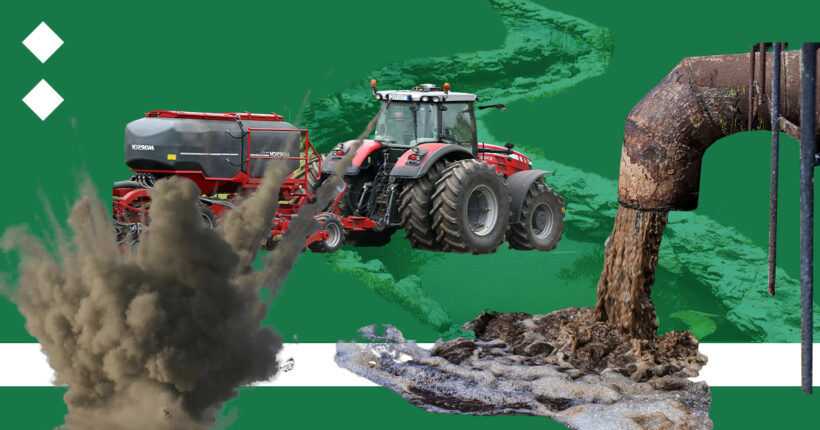
What is the problem?
This year is not the first time that ecologists are warning about the disappearance of a part of rivers and other surface water bodies in Ukraine. Rubryka visited the Lviv region with experts and ecologists to examine the very real threat to Ukraine's vital water systems, and what's being done about it.
How do farmers kill Ukrainian rivers?
Taking in the lush view of a thriving wheat field, one may not immediately think of the impact it can have on the local ecosystem. In addition to the fact that plowing is much less likely to deposit carbon than steppes or meadows, farmers often ignore the prohibition imposed by environmental laws and sow as much area as possible.
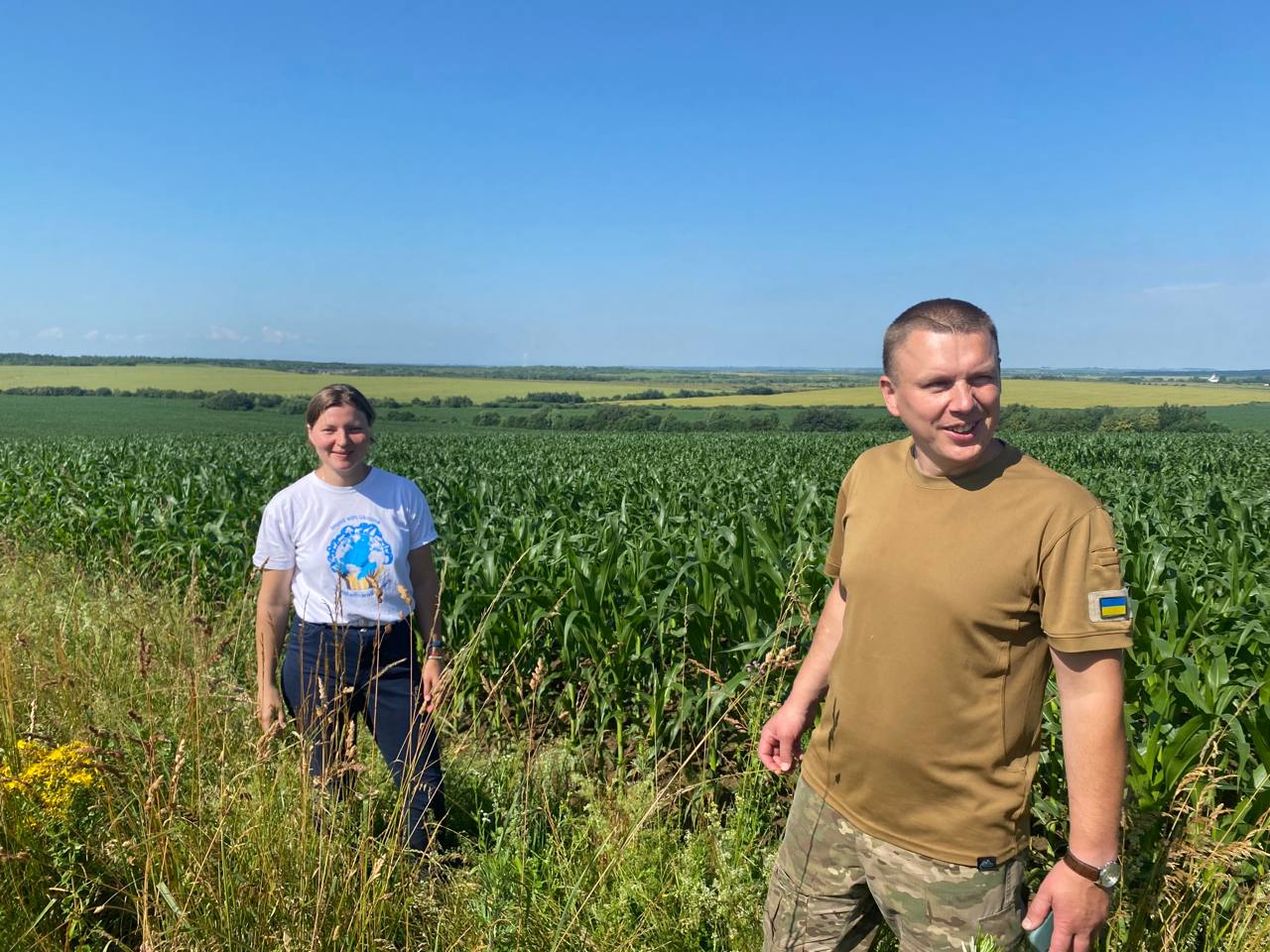
Ecologists Kateryna Polyanska and Anatolii Pavelko talk about the problem of river plowing in one of the fields of the Lviv region.
Article 80 of the Water Code of Ukraine limits how much farmers can plant their fields close to bodies of water – even if they own the land – to within 25 meters from rivers and floodplains, which are highly valuable to the ecosystem. They are both ecological corridors, migration routes, and permanent animal habitats.
However despite the prohibitions, those territories are being overused by farmers. If you look at a map from a satellite, you may not notice the river at all – farmers have simply destroyed it, although it is still listed on the zoning map.
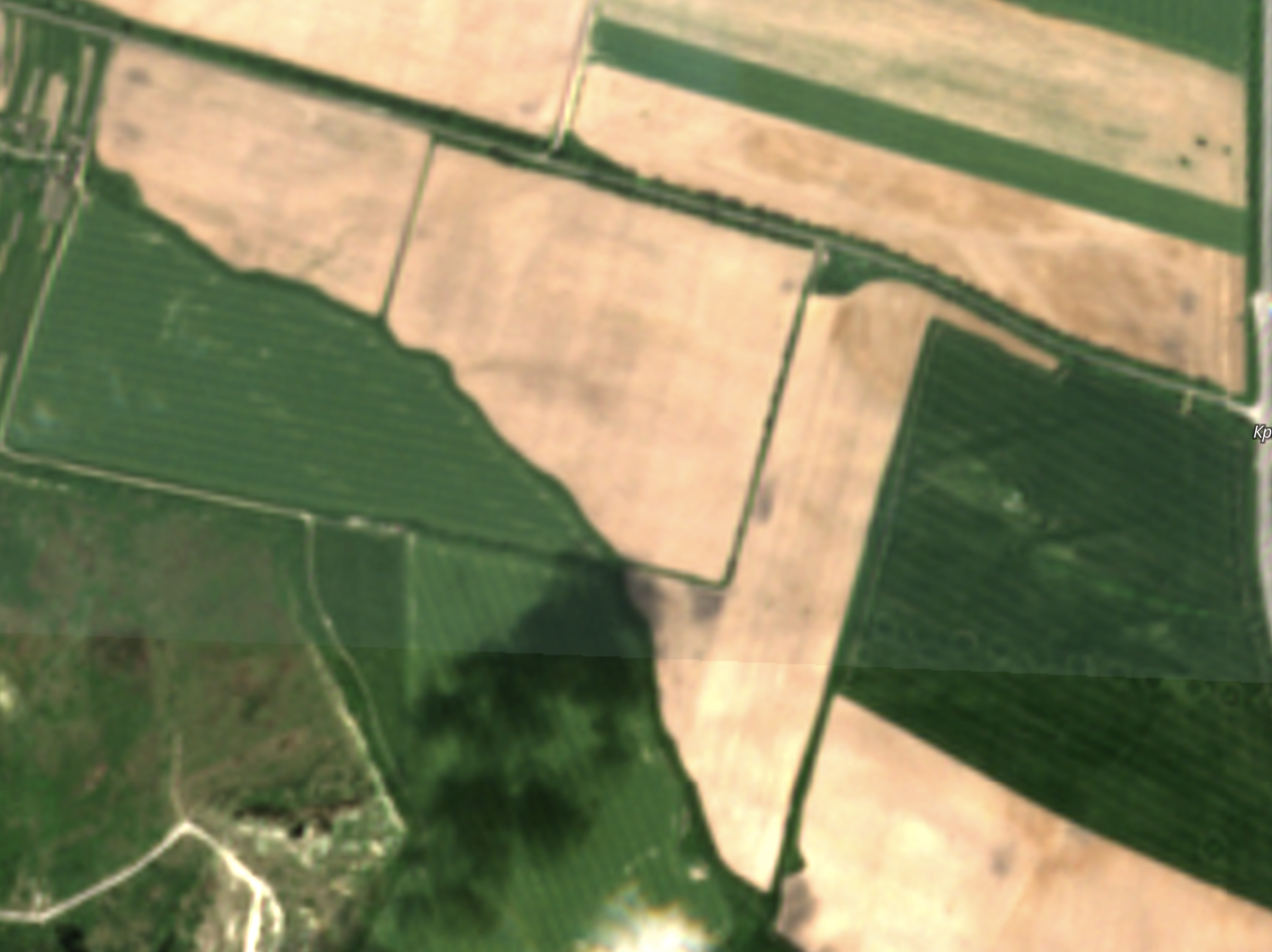
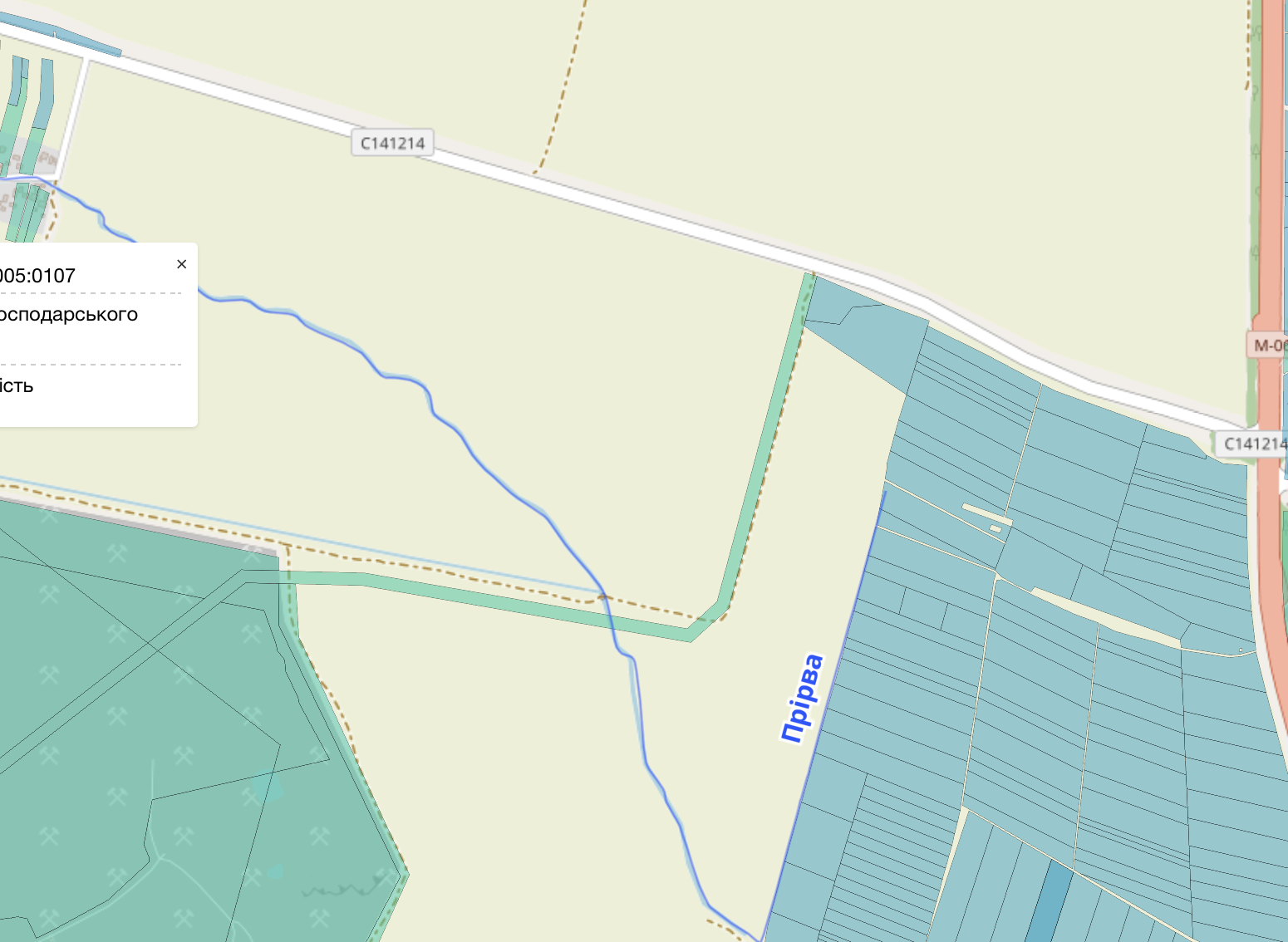
The photos show the same area, photographed from a satellite as well as depicted on the cadastral map. The Prirva River is almost invisible, but the field is clearly limited by its contours. The limit of 25 meters was not observed.
The regulation is in place so that when the river is plowed along the bank, it has time time to be refilled with rainwater — but when fields are plowed too close, rainwater simply goes into the ground, and the rivers gradually dry up from the reduced water flow.
"Moisture evaporates from the soil due to plowing – so the more plowed, the less water in the soil, and the fewer rivers. Due to the use of pesticides and phosphates on rivers, chemical pollution occurs, and rivers disappear. However, along with farmers, the military can compete with chemical pollution," Oleksii Vasylyuk, head of the Ukrainian Nature Conversation Group, comments.
Why can military actions affect the disappearance of rivers?
Military operations and artillery shelling can also create belligerent landscapes that destroy the local ecosystem and pollute rivers when chemicals enter the water system. The ingress of explosive materials from fires resulting from projectile explosions is extremely dangerous because they cause emissions of complex polycyclic compounds, most of which are poisonous and can cause cancer.
Septic tanks and sewers are the enemies of fish in rivers
Landfills, especially illegal or mismanaged ones, are sources of soil, air, surface water, and groundwater pollution. Illegal discharges of water from sewers and dunghills, where farmers dump waste from farms, harm the fauna and flora of rivers.
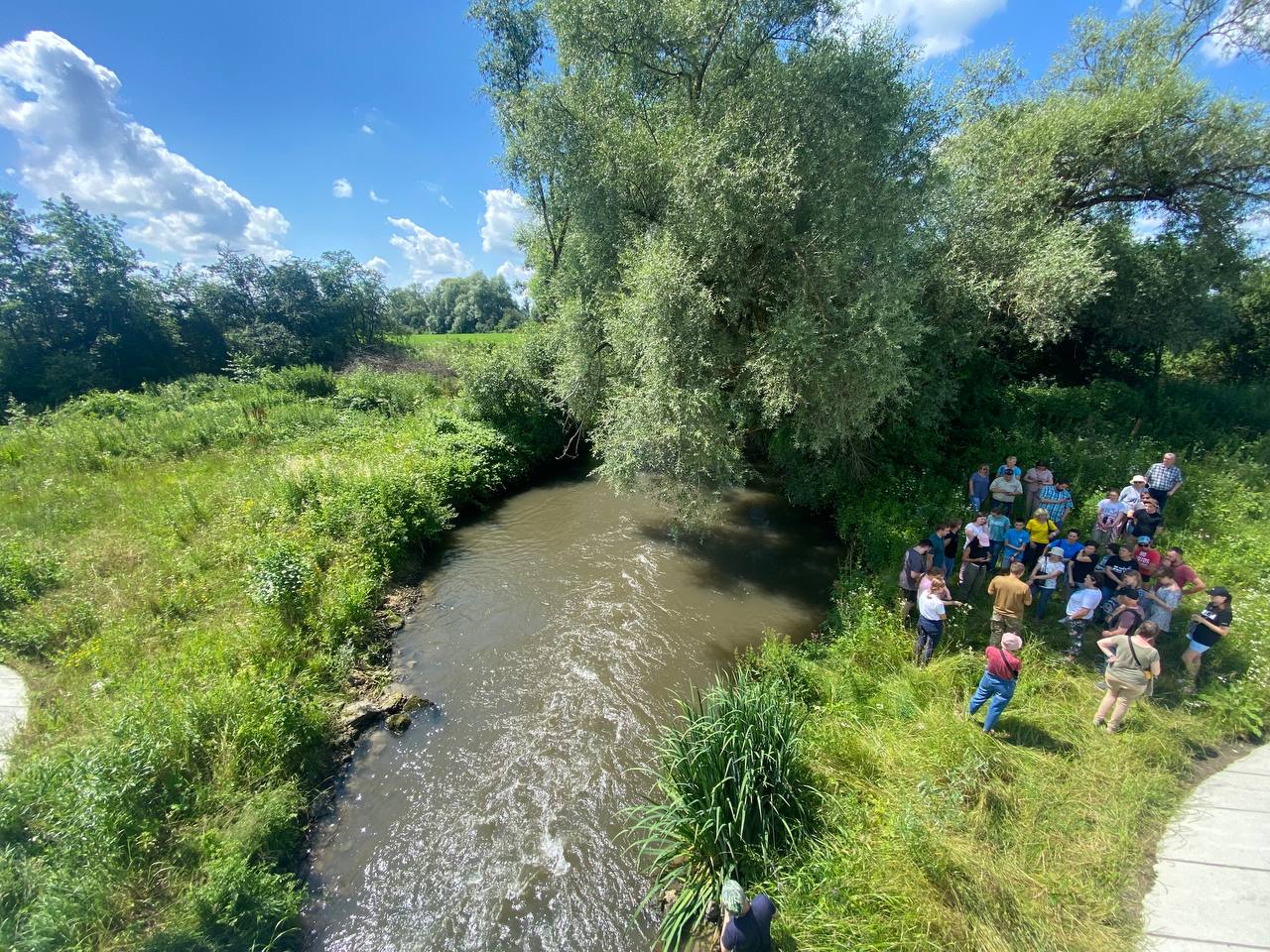
The Zubra River in the Lviv region begins directly in the city of Lviv. At first glance, this is an ordinary river. However, the fish can't stand it here.
Pavelko explains that because of the lack of a centralized sewage and water treatment in Lviv, sewage water is discharged into the Zubra from the Tsarski sela — a suburb of Lviv. Septic tanks in private houses can only provide up to 30% water purification, no matter how clean they are – so pollutants inevitably enter rivers through groundwater, and this can eventually leads to the death of the river.
According to Pavelko, the sewage treatment plants built in Ukraine built in the 1970s and 80s have already exhausted their resources long ago because outdated technologies do not purify water sufficiently and cannot cope with the load, which increases with the addition of new housing. Sometimes industrial and municipal sewers have a common flow, but both cases require different treatment technologies.
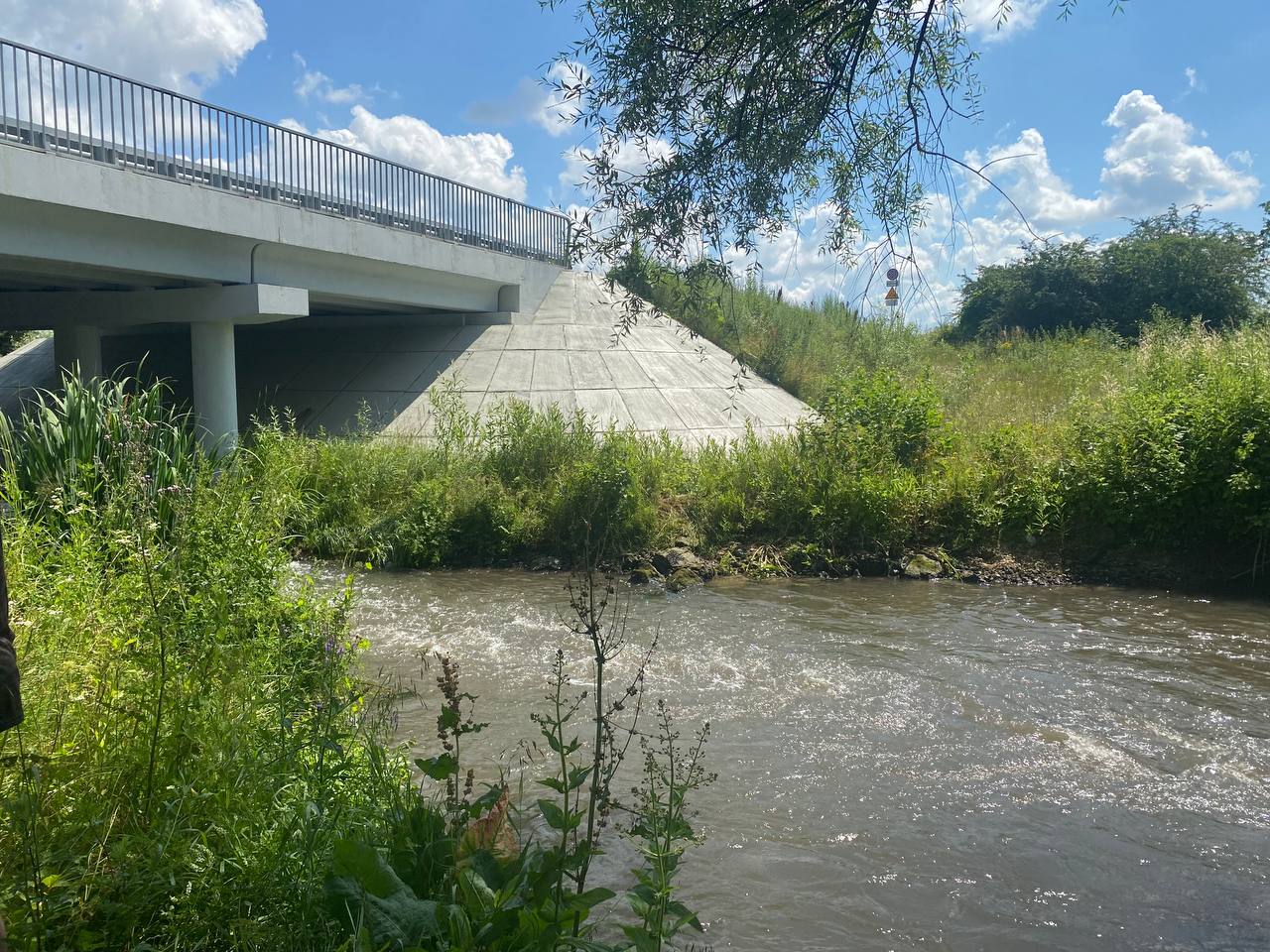
The Zubra River in the Lviv region is polluted and depleted of fish due to sewage discharge and insufficient cleaning.
"Unfortunately, this is not the only case. Due to improper sewage treatment, Lviv continues to lose its blue network," the ecologist says. The same situation extends to the entire territory of Ukraine.
The old grandiose structures for changing ecosystems still exist
Grandiose plans implemented during the USSR era to develop agricultural lands resulted in hundreds of destroyed ecosystems. Some distorted natural objects exist in this state to this day, and are still causing damage to other ecosystems.
For example, the stream of the Shchyrok River – in which, according to Pavelko, you can still swim – was modified. Previously, the Shchyrok flowed directly into the Dniester and was an important spawning ground for some valuable fish species, for example, chub or maple and tench. Today, the spawning of these fish is impossible because, during land reclamation and the construction of dams along the banks of the Dniester, it turned out that during large floods, the surrounding area is flooded, and this was problematic from the point of view of the plans for agricultural development of the territories. Therefore, the Shchyrets River was diverted to the neighboring Zubra River, and a system of sluices was built along the old brook to pump excess water into the Dniester.
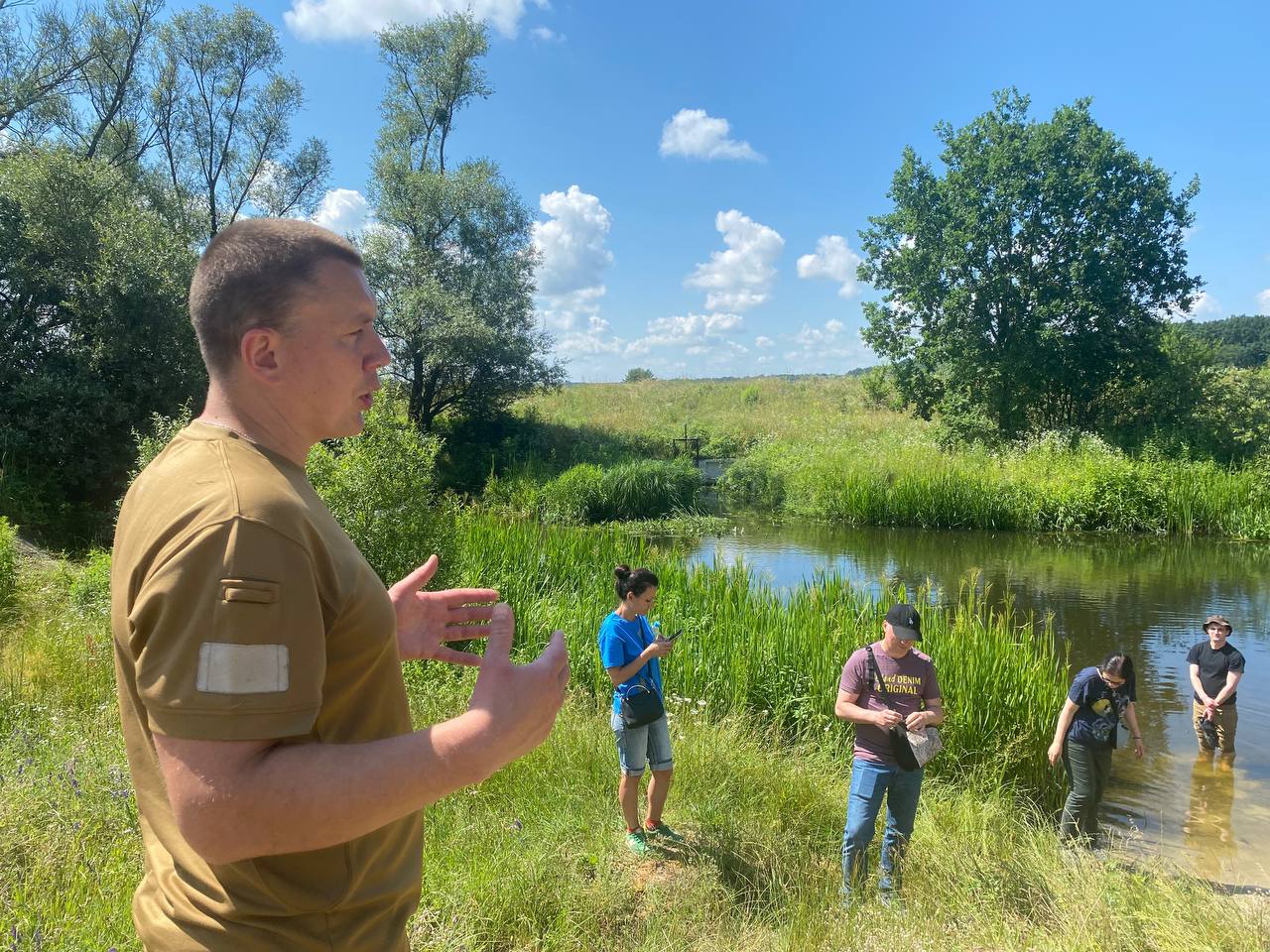
Standing on the bank of the Zubra River, Pavelko explains why the Shchyrets River is depleted of fish. In the center of the photo, among the vegetation, you can see old communications from the times of the USSR. Excess water is pumped away from the river to prevents flooding.
The system still works, although reclaimed lands are no longer used for agriculture. However, damage to the ecosystem continues. Further downstream, polluted waters of the Zubra enter the Shchyrets River, which significantly decreases the number of fish in the river.
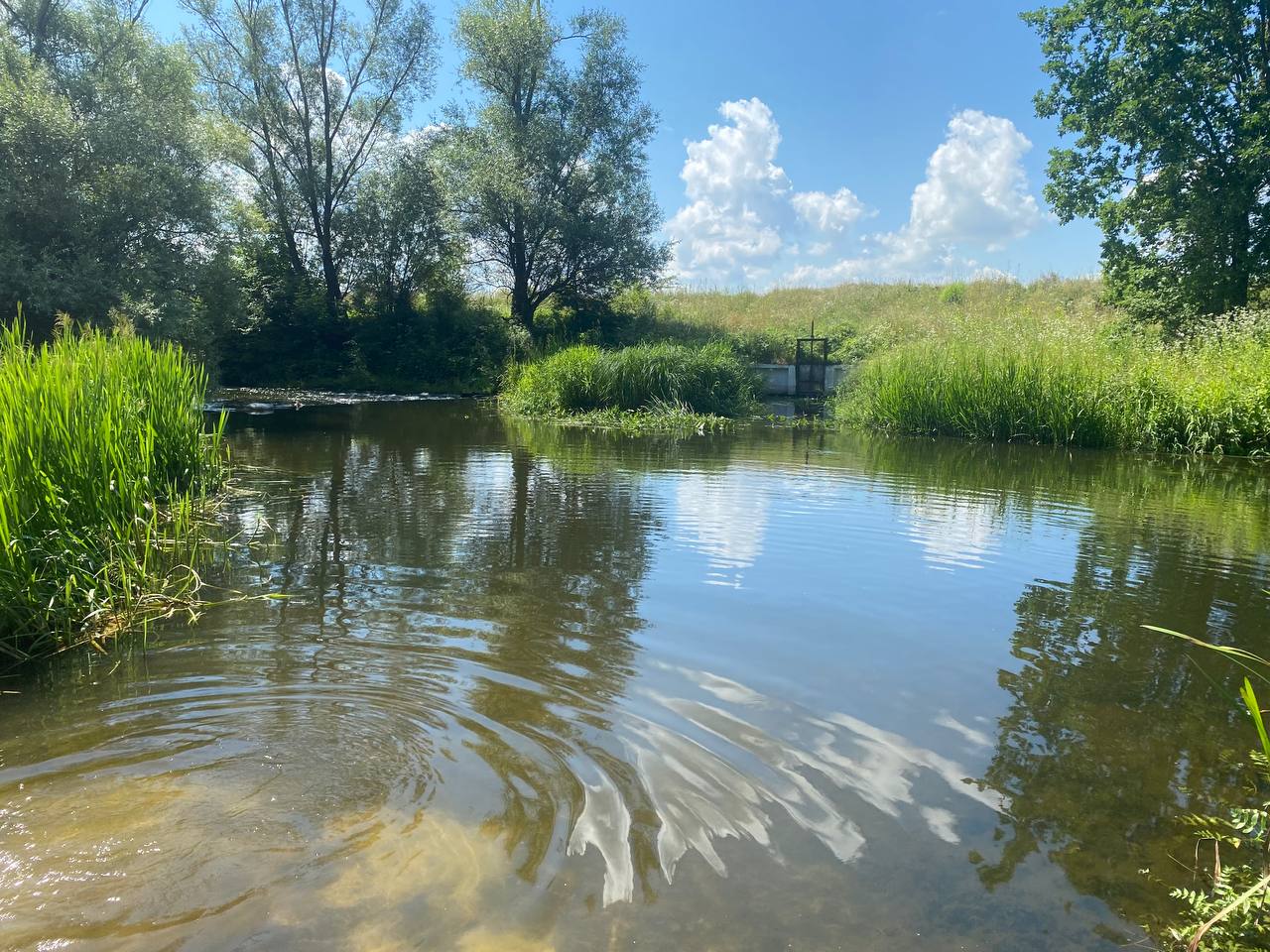
The shore of the Shchyrets river beach in the Lviv region.
What is the solution?
What do ecologists offer?
Experts of the All-Ukrainian Environmental League emphasize that the priority measures in restoring and preserving water resources, in particular small rivers, should be:
- environmental assessment of the river regulation process. Ponds and other hydraulic structures in the tributaries of rivers today pose a significant threat because they increase evaporation and provoke shallowing of watercourses;
- improvement of the hydrological state of reservoirs, in particular, clearing of riverbeds;
- assessment of hydro-technical structures (dams, spillways, sluices). When it is confirmed that the dam or sluice does not perform direct functions, they should be dismantled;
- regulation of water protection zones and coastal protective strips;
- raising the population's ecological outlook regarding the rational use of water resources and reducing the use of household chemicals and pesticides;
Recovery plan
These plans are being implemented and announced in Ukraine's recovery plan 2.0, which includes the Ecosecurity 2.0 section and is currently being finalized by the Ministry of Environment. This plan also mentions small rivers in Task 23 — implementation of measures to restore small rivers and wetlands, as well as water conservation measures.
A list of projects to be implemented include the conservation of wetlands in the areas of river basins. This involves the preparation of legislative and regulatory, and methodological principles for the preservation of wetlands. To fulfill the task, the officials want to attract €20,000 as scientific support for project implementation from the state budget and international technical assistance.
The project has a crucial point: a ban on drainage and reclamation works in all areas and tracts in the headwaters of rivers. This is required by Directive 2000/60/EC of the European Parliament and of the Council of 23.10.2000, establishing a framework for the Community's water policy activities. If these provisions apply, Ukraine will have more chances to save its rivers.
In addition to this, the list of projects includes pilot projects for the application of ecosystem services in hydropower and forestry, as well as component projects of works on the restoration of ecosystem services, which provides for works on the restoration of wetlands. It is planned to spend €3.21 million taken from the Fund for the Restoration and Transformation of the Economy of Ukraine. For all this to work, it is necessary to write and lobby for adopting the law On Ecosystem Services and the corresponding by-laws.
Ukraine should reduce the amount of plowing
Reducing the area of arable land has long been a goal of scientists involved in agriculture — it is about reducing the area of arable land to 37 to 41%. Directive 2003/30/EC requires the same, according to which Ukraine must turn 30% of agricultural land into nature reserves.
Such a bequest of lands does not mean that Ukraine should leave these lands because it would be unfair to simply take away the source of livelihood from farmers. Vykhrystiuk suggests that farmers create pastures on these territories and live off dairy production as an alternative.
What to do with septic tanks and sewers?
The European Union has a program for constructing a centralized sewage and water treatment system for small settlements which has already been implemented in almost the entire EU except for Romania, but even there, this process is already close to being completed.
Ukraine also struggles with such discharges into rivers. For example, in Lviv, they are trying to eliminate illegal drains and connect them to the centralized sewage system.
Positive developments have already begun. If the adopted norms really work and all the announced changes are brought to an end, Ukraine may still be able to preserve its blue arteries.


